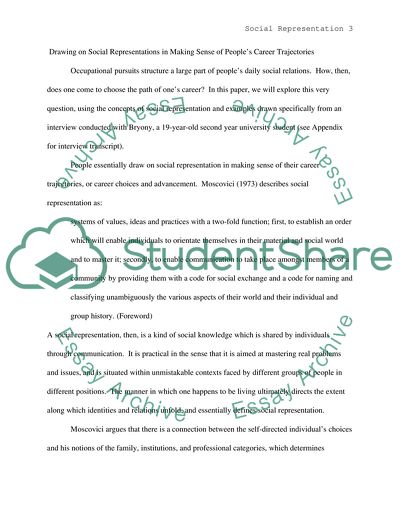Cite this document
(Drawing on Social Representations in Making Sense of Peoples Career Literature review, n.d.)
Drawing on Social Representations in Making Sense of Peoples Career Literature review. Retrieved from https://studentshare.org/social-science/1536766-demonstrate-how-people-draw-on-social-representations-in-making-sense-of-their-career-trajectories-draw-on-theoretical-and-empirical-work-in-your-response
Drawing on Social Representations in Making Sense of Peoples Career Literature review. Retrieved from https://studentshare.org/social-science/1536766-demonstrate-how-people-draw-on-social-representations-in-making-sense-of-their-career-trajectories-draw-on-theoretical-and-empirical-work-in-your-response
(Drawing on Social Representations in Making Sense of Peoples Career Literature Review)
Drawing on Social Representations in Making Sense of Peoples Career Literature Review. https://studentshare.org/social-science/1536766-demonstrate-how-people-draw-on-social-representations-in-making-sense-of-their-career-trajectories-draw-on-theoretical-and-empirical-work-in-your-response.
Drawing on Social Representations in Making Sense of Peoples Career Literature Review. https://studentshare.org/social-science/1536766-demonstrate-how-people-draw-on-social-representations-in-making-sense-of-their-career-trajectories-draw-on-theoretical-and-empirical-work-in-your-response.
“Drawing on Social Representations in Making Sense of Peoples Career Literature Review”. https://studentshare.org/social-science/1536766-demonstrate-how-people-draw-on-social-representations-in-making-sense-of-their-career-trajectories-draw-on-theoretical-and-empirical-work-in-your-response.


